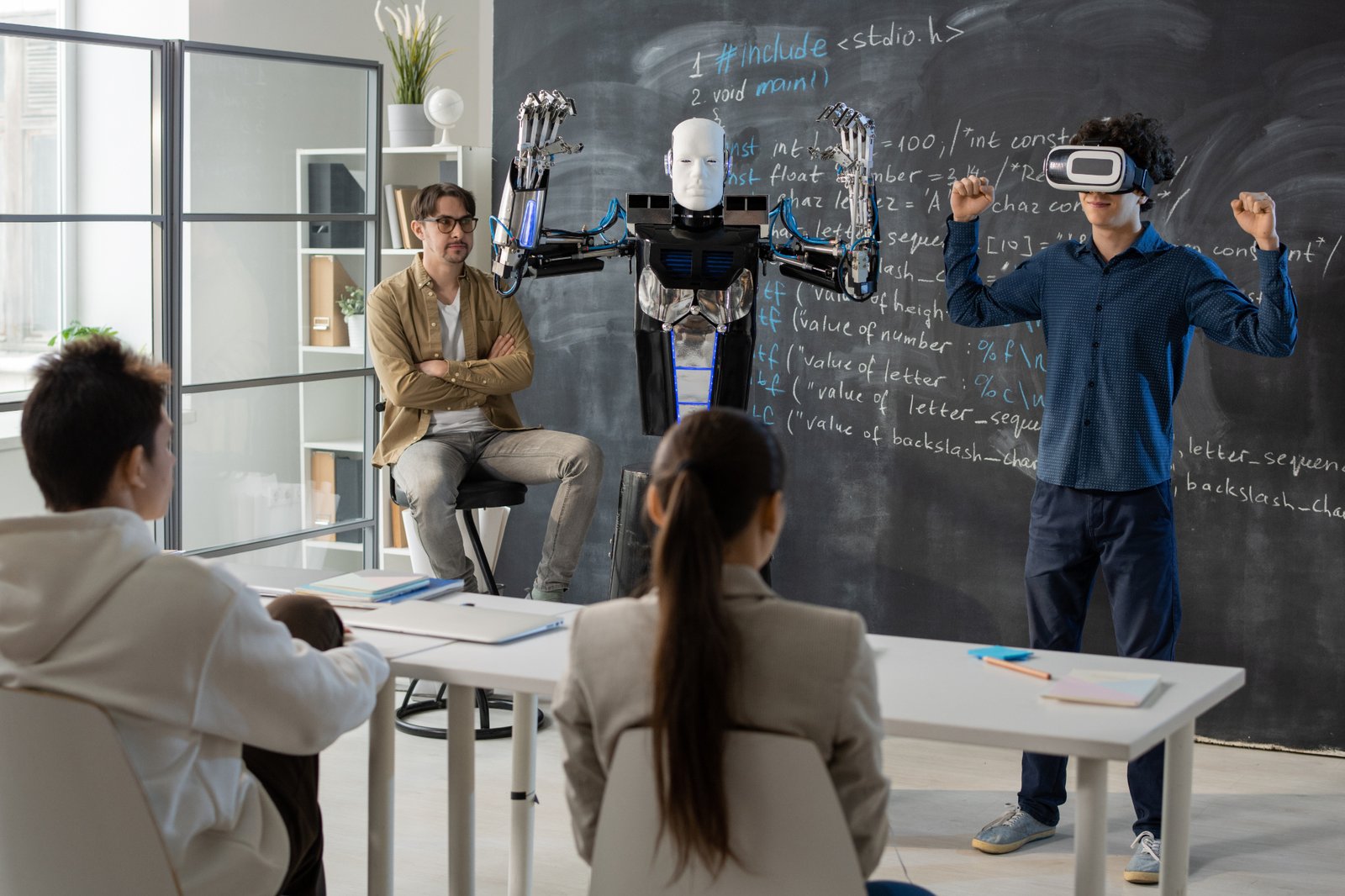From Home to Hub: How AI is Revolutionizing Remote Work

Introduction
Imagine a world where remote work isn’t just a necessity but a choice, seamlessly integrated into our daily lives with all possible conveniences. Thanks to rapid advancements in artificial intelligence (AI), this vision is closer to reality than ever. This article explores how AI is transforming remote work, improving efficiency, and making it smarter for both employees and employers. We’ll delve into various aspects of AI applications in remote work, including communication, productivity, security, and collaboration.
1. Enhancing Communication with AI
- Communication is the backbone of any successful remote work setup. AI-powered tools are paving the way for smoother interactions and more effective communication channels.
- AI Chatbots and Virtual Assistants
- AI chatbots are being employed to handle routine inquiries, scheduling, and even providing real-time support during meetings.
- Virtual assistants like AI-driven transcription services are transforming how we capture and share critical information from virtual meetings. Tools such as Otter.ai can transcribe conversations in real-time, minimizing the risk of missing important details.
- Natural Language Processing (NLP) in Emails
- NLP tools can summarize emails, highlight action items, and even suggest responses. Platforms like Grammarly are enhancing written communication by providing style and tone suggestions, making emails clearer and more professional.
“AI tools are stepping up to ensure that communication remains consistent and effective, irrespective of time zones or languages.”
- AI Chatbots and Virtual Assistants
2. Boosting Productivity through Intelligent Automation
- AI is at the forefront of automation, enabling remote workers to enhance their productivity by taking over repetitive, time-consuming tasks.
- Task Management and Time Tracking
- Software like Trello and Asana leverages AI to prioritize tasks, predict completion times, and provide reminders, allowing workers to focus on high-impact activities.
- AI-driven time tracking apps, such as Time Doctor, offer insights into the most productive hours and identify potential distractions that could hinder workflow.
- Personalized Workflows
- AI can analyze work patterns to suggest personalized workflows, helping individuals and teams optimize their schedules to maintain a balanced work-life dynamic.
“Customizable workflows powered by AI can lead to a substantial productivity boost by tailoring to individual work habits.”
- Task Management and Time Tracking
3. Enhancing Security in Remote Environments
- With the rise of remote work, digital security has never been more critical. AI plays a significant role in enhancing security measures and safeguarding data.
- AI-Powered Cybersecurity
- AI systems can detect unusual patterns that may indicate security breaches, enabling companies to respond swiftly to potential threats.
- Tools like Darktrace utilize machine learning to establish a baseline of normal network activity, making it easier to identify anomalies.
- Secure Access Management
- Biometric authentication and AI-driven access controls ensure that only authorized personnel can access sensitive information.
“In remote work setups, AI helps in creating a robust security shield, instilling trust and confidence in remote teams and clients alike.”
- AI-Powered Cybersecurity
4. Facilitating Collaboration in Digital Workspaces
AI fosters a collaborative atmosphere, bridging the gap between team members regardless of their physical location.
Smart Collaborative Tools
- Platforms like Slack and Microsoft Teams are embedding AI features to sort messages, recommend relevant channels or groups, and even forecast when replies are likely to be received.
- AI-driven document collaboration tools such as Google Workspace provide real-time editing suggestions and identify document anomalies.
Virtual Reality (VR) and Augmented Reality (AR)
- AI integration with VR and AR technologies is creating immersive environments that simulate in-person meetings. This approach not only improves communication but also bolsters camaraderie among remote teams.
Conclusion
AI technology is proving to be a game-changer in the realm of remote work. By enhancing communication, automating mundane tasks, ensuring security, and fostering collaboration, AI is paving the way for a more efficient and smarter remote work environment. As AI continues to evolve, remote work will likely become even more seamless and appealing, offering unprecedented flexibility and productivity.


